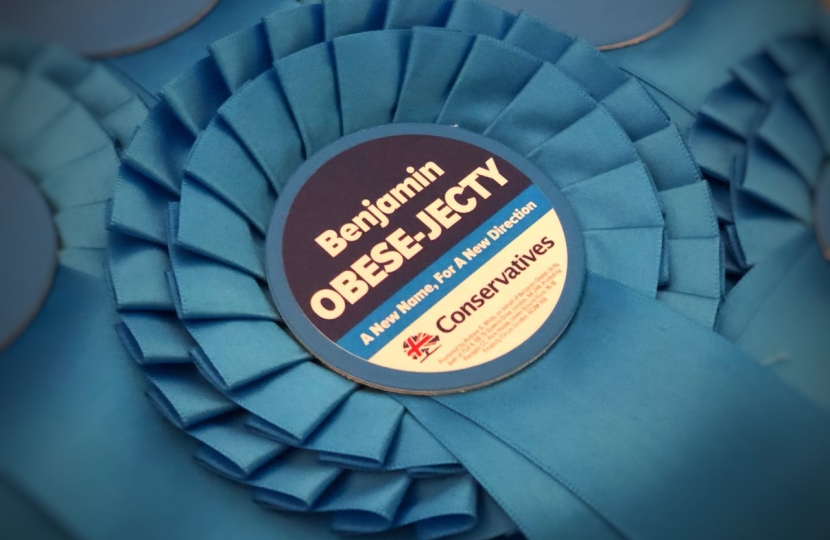
Throughout the course of the 2019 election campaign I can safely say that as a first-time candidate I learnt a phenomenal amount. Indeed there were times when the learning curve felt steep enough to require crampons and a base camp.
My own selection as the candidate for Hackney North and Stoke Newington came at the eleventh hour and I found that there were few sources of information on how to campaign available. With that in mind, these are some of the broader themes I feel were key to my own experiences over the election and may be of interest to those yet to conduct their freshman campaign.
Leadership:
There are very few job interviews in life as rigorous as candidate selection and an election campaign. No other job ultimately requires the approval and validation of thousands of people, almost all of whom you’ll never meet or have any opportunity to influence in person. You will be heavily reliant upon your ability to motivate and enthuse volunteers to support your campaign. To gain the endorsement of the local electorate, a delicate balance of drive, confidence, empathy and approachability is required. You will simultaneously be required to appeal to people across the breadth of the political spectrum, across divides of education, class, race and religion in order to assure constituents that you are the candidate best-placed to serve their needs, and the needs of others.
Your leadership is the single most important factor of any campaign, from an unwinnable seat in central London, to a marginal in the Midlands or a safe seat in the Home Counties. Whether winning is inevitable or improbable, your ability to show leadership at this moment will be indicative of your ability to show that same leadership should you find yourself on the green benches.
Humility:
My local Association is Hornsey and Wood Green, a safe Labour seat. How much more could I learn from campaigning in Hackney North & Stoke Newington, another area predominantly hostile to the party? The answer was a lot, with multiple layers of nuance and subtle differences between communities and areas.
Talking to people on the doorstep and listening to their individual concerns, concerns that you are seeking to address personally as their elected representative, is a hugely humbling experience. To empathise with people you’ve never met or spoken to, about such a wide array of issues, local and national, immediate and long-term, some of which you could never have foreseen, is perhaps the most important experience I have gleaned from this campaign. To foster and develop your capacity to reassure constituents that you have heard them and will endeavour to help them is part of the reason that you want this job in the first place.
Commitment:
Having spent nearly a decade as an Infantry Officer I am no stranger to the requirement of sustaining a high tempo; I served during the period of operations that saw the Army spread thinly across Iraq and Afghanistan. I would liken the tempo required to campaign, even in an unwinnable seat, to that.
Many candidates will have to maintain their day job throughout the campaign. With little likelihood or (sadly) expectation of defeating an MP of 32 years and a stalwart of the Shadow Cabinet, I knew that I would still need to pay the bills and maintain a good working relationship with my employer beyond December 12th. With that in mind, campaigning will need to be conducted alongside (in addition to) work commitments. In my case this meant a 15-hour days, with weekends spent supporting multiple local seats and your own seat in-between those sessions. Whilst I had the advantage of geographic proximity to the seat I was standing in, not all candidates are that fortunate and commitment levels will increase significantly if the seat you are standing in requires substantial travel too.
As a single man with only a partner to appease (despite roping her in at every opportunity) I found this highly challenging. For an individual with family commitments, a less accommodating job, or a more geographically demanding seat (or all of the above), this may be difficult to overcome without having prepared adequately beforehand.
Preparation:
The chances are that you will not be familiar with answering policy related questions with an adroit response, on message and satisfactory to those listening. You may also not yet be a dab hand at public speaking, or like myself, be competent but lacking the confidence that comes with experience.
Though it will feel unnatural, silly even, delivering a speech to the dog using a banana as a prop microphone, or teaching yourself out of distracting mannerisms it does help to identify those areas that may benefit from attention; what exactly are you planning to do with your hands? How do you stop yourself from putting your hand in your pocket? Eliminating any traits which detract from your overall level of performance and therefore your ability to feel at ease with the message you wish to convey is time well spent. Invest time in yourself, ideally now in the downtime between elections, to ensure you are ready should the opportunity present itself.
In summary, these skills are there to be built upon over the next five years; to be honed and refined in order to ensure that not only are you the Party’s best choice of candidate for a specific seat, but that you are the best candidate. We owe it to ourselves as Conservative candidates to provide the best and most effective cohort of prospective MPs so that the Party’s challenge is having such a talented pool to select from, so that we both capitalise upon the recent victory and continue to build upon these successes for the future.
I hope to see you on the campaign trail next time around.




